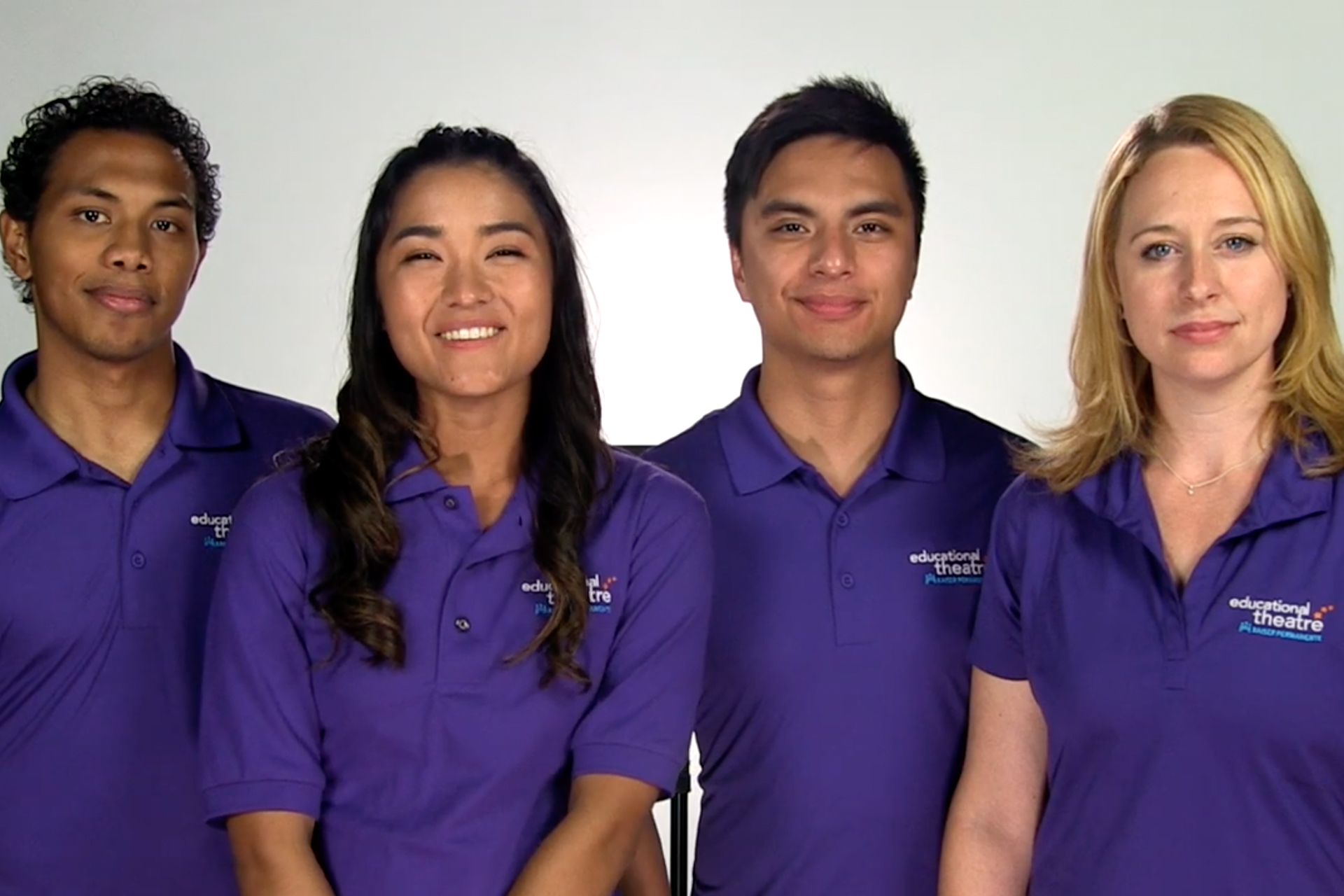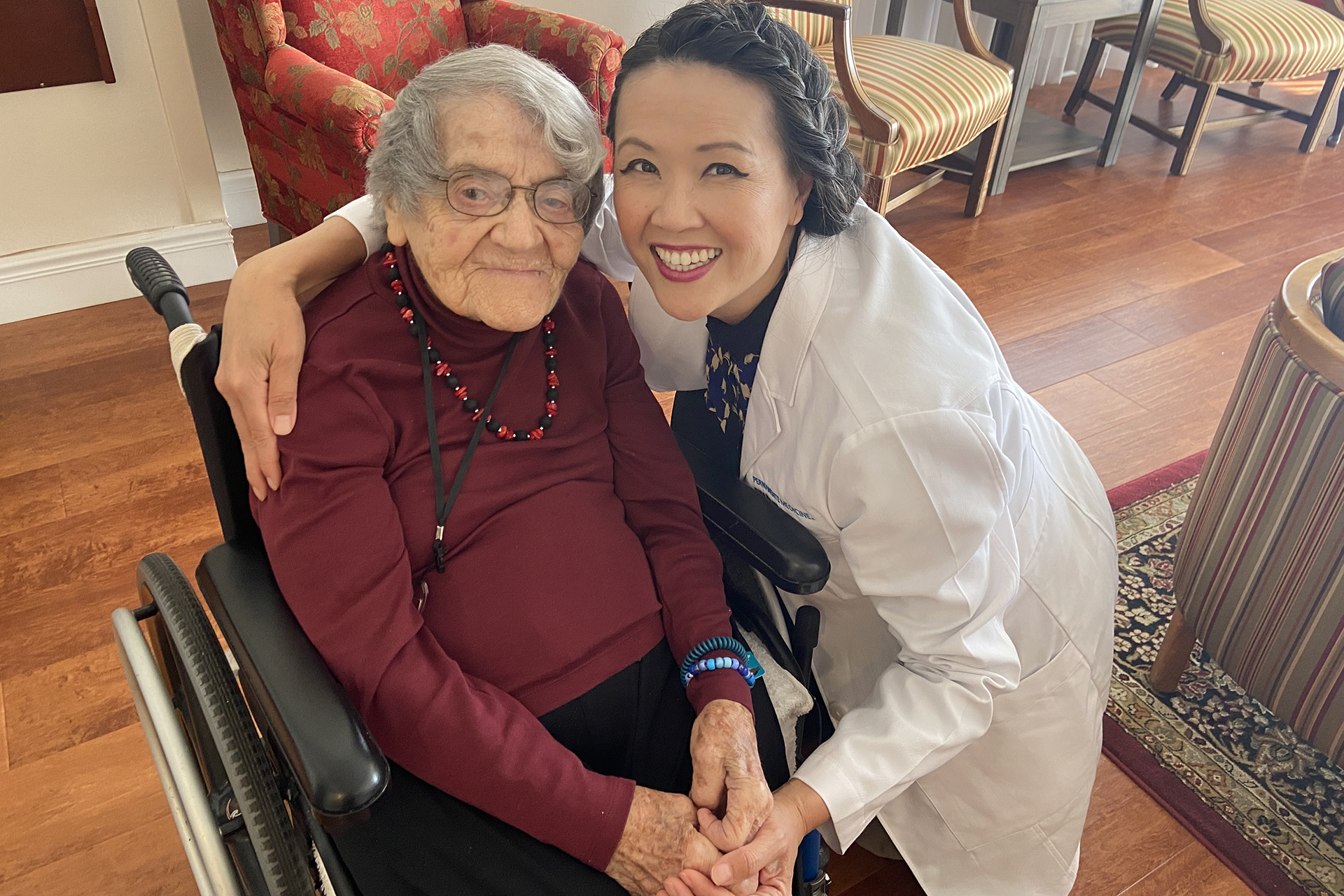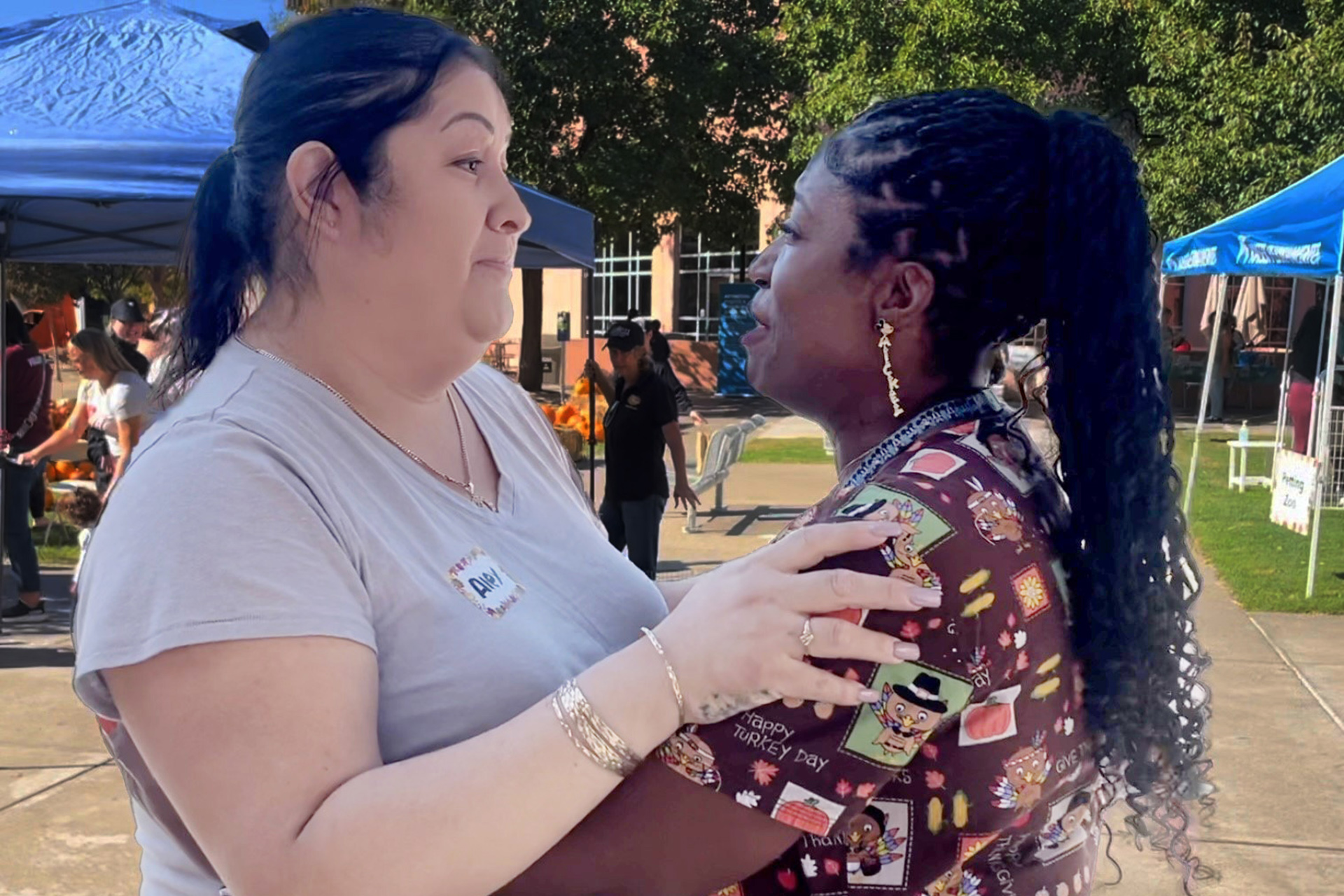What does a 13-year-old do when she shares a room with her sister and is trapped inside much of the day?
New Kaiser Permanente Northern California Educational Theatre content offers some creative and inspiring solutions online to this common situation and a host of other teen-centric mental health dilemmas posed by social distancing measures and online classes.
The online programming for middle school students is based on the popular Nightmare on Puberty St. show. Last spring, links to 4 videos and 2 podcasts were sent to 49,000 students in Northern California, said Kaiser Permanente Educational Theatre Program Coordinator Jared Randolph.
“While our audience is all middle school students, our focus right now is on those kids who are most at risk for suicide, depression, domestic violence, drug and alcohol experimentation, and risky sexual behavior,” Randolph said. “These are situations that require immediate support from a trusted adult, be it a teacher, family member, or friend.”
Healthy Social Distancing
In better times, the 34-year-old theater group typically reaches about 215,000 Northern California students each year with its live in-school performances for kindergarten through 12th grade audiences.
When the COVID-19 pandemic closed schools last spring and forced most of them to switch to online learning in the fall, the Nightmare on Puberty St. team looked for new ways to reach audiences and is producing online-only content from home studios until it’s safe for groups to get back together.
The content focuses on issues middle school students might be facing while they are sheltering in place with their families. It also highlights the longstanding partnership with the California Youth Crisis Line that kids can call, confidentially, 24 hours a day, 7 days a week.
“What’s most important to note is that we are trying to improve all our programming to be in support of specific issues people are encountering right now with economic, physical, and mental challenges,” Randolph said.
One of the challenges many at-risk students face with sheltering in place is getting a break from difficult or abusive family situations.
“Going to school normally offers a break from the home environment, with the consistency of a school breakfast or lunch to rely on,” Randolph said. “Or they could be missing connecting with friends that they can’t manage privately while at home.”
Privacy, Socializing, Anxiety
The new videos, filmed by actors at home, address the need for support and mindfulness, sharing space at home, and the importance of staying active while sheltering in place. The podcasts explore cyberbullying, online streaming, finding creativity, and dealing with anxiety.
For example, the Sharing Space at Home video features tips on setting boundaries with other family members, making sure bathroom time is private time, tips for kids who share a room, and creating a code word that lets family members know when someone needs a bit of physical and mental space.
With Kaiser Permanente’s longstanding presence in California schools, Educational Theatre is in a good place to continue to make a difference, even in difficult times.
“We are in a position to give prevention messaging to educate rather than being reactive,” Randolph said. “So, when they are faced with a difficult dilemma, they can make an informed decision.”





This Post Has 3 Comments
Exceptional work and impact by an inspiring group of “difference makers”! Well done.
I have loved this program from the start. Great work and what a legacy!
Once again, Education Theatre creates relevant, ground breaking programs to serve your youth. ! Kudos !
Michael Armstrong, MS
Manager, Health Education Department
Walnut Creek Medical Center